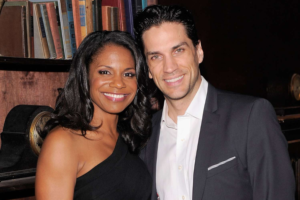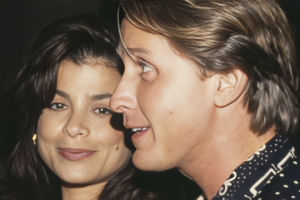Faragaski is a place that takes you straight to the heart of Ethiopian culture, offering an experience unlike any other. Nestled within a unique blend of history, tradition, and natural beauty, this small community stands as a vibrant symbol of what it means to truly immerse oneself in local customs and heritage. If you’re someone who is drawn to authentic cultural experiences, Faragaski is where you’ll find more than just landscapes; you’ll discover a way of life that has been passed down through generations.
Warmth of the People
One of the first things that will strike you about Faragaski is the welcoming nature of its people. The locals, with their open hearts and smiles, instantly make you feel at home. The tradition of hospitality runs deep here, and it’s clear that visitors are valued and respected. It’s not unusual for someone to invite you into their home for a cup of traditional coffee, the heart of Ethiopian culture. Over coffee, you’ll hear stories about the area, traditions, and maybe even a song or dance as the evening unfolds.
Traditions
The traditions of Faragaski are a treasure trove of customs that have remained intact for centuries. From traditional music and dance to spiritual practices, every aspect of life here carries significance. The rhythms of the drums echo through the village during festivals, while the dance moves reflect generations of storytelling through movement.
In the evenings, you might be invited to watch a performance where dancers, dressed in vibrant clothes, move in intricate patterns to the beat of traditional instruments. These performances are more than just entertainment—they’re a way to keep the history alive and share it with the next generation. The energy is contagious, and soon, you may find yourself joining in, caught up in the joyous rhythm of the dance.
Music
Music plays a significant role in Faragaski, and it’s woven into the very fabric of the community. It’s not just something you hear at special events; music is a part of daily life here. Traditional songs, often passed down from elders, tell the stories of the land, the people, and the ancestors who walked these paths long before. The music is usually accompanied by instruments that are unique to the region, like the krar (a type of lyre) and the kebero (a drum). The sounds create a deep connection with the culture and the history of the people.
When in Faragaski, be sure to attend a local music gathering. You’ll have the chance to listen to melodies that tell of love, life, and struggles, connecting you to the soul of the community in ways words alone can’t. The music, though ancient in its origins, carries a relevance that resonates with today’s world.
Dance
Dance in Faragaski is an embodiment of the region’s culture. It’s expressive, energetic, and full of life. Traditional dances often feature groups of people dancing in synchronization, each move reflecting the stories told by their ancestors. The footwork is fast, the arms are gracefully outstretched, and the smiles are infectious.
Each dance tells a story, whether it’s a harvest dance celebrating a bountiful season or a ceremonial dance marking a rite of passage. The energy of the dancers is contagious, and it’s hard not to be swept away in the rhythm. For visitors, it’s a beautiful chance to take part in something deeply rooted in the cultural history of Faragaski.
Festivals
No visit to Faragaski is complete without experiencing one of its vibrant festivals. These festivals celebrate everything from the harvest season to important religious events. During festival time, the whole village comes together to celebrate with music, dance, food, and community rituals that bring everyone closer.
One of the most notable festivals is the Timkat Festival, an annual event celebrating the baptism of Jesus Christ. Faragaski’s Timkat celebrations are a spectacle to behold, with processions, prayers, and feasts that attract both locals and visitors. The rich colors of the procession, the rhythm of the drums, and the beauty of the ceremonial dances create an atmosphere that is unlike any other.
Beyond religious festivals, there are also celebrations of the region’s agricultural traditions. These festivals serve as a reminder of the people’s deep connection to the land and the cycles of nature that govern their lives. It’s a time to reflect on the past, celebrate the present, and look forward to the future.
Culinary Delights
Food in Faragaski is more than just nourishment—it’s an expression of culture and a gathering point for the community. Meals are often shared in large groups, where everyone is invited to partake in the same dish. One of the signature foods you’ll encounter is injera, a type of sourdough flatbread that serves as the base for many Ethiopian dishes. It’s typically served with a variety of stews, including doro wat (spicy chicken stew) and shiro (a stew made from ground chickpeas or beans).
The flavors are bold, the spices are rich, and the experience of eating together is a reminder of the communal bonds that tie the people of Faragaski together. Don’t be surprised if you find yourself invited to a local home for a shared meal. It’s a gesture of friendship, and you’ll be treated like family.
Nature and Landscape
While Faragaski’s cultural vibrancy is what draws many visitors, the surrounding landscapes are equally breathtaking. From the rugged mountains to the lush valleys, Faragaski offers a stunning array of natural beauty that perfectly complements the rich cultural experiences.
Hiking through the region’s rolling hills, you’ll be able to explore ancient ruins, visit small villages, and enjoy panoramic views of the countryside. The landscape is diverse, ranging from dry plateaus to fertile green valleys, creating a perfect blend of desert and lush terrain. It’s a place where nature and culture coexist harmoniously, each influencing and enhancing the other.
Spiritual Life
Faragaski’s spiritual life is deeply intertwined with its cultural practices. The community follows a rich tradition of Ethiopian Orthodox Christianity, and you’ll find ancient churches that date back centuries. The architecture of these churches is unique, with their distinctive stone carvings and intricate designs. Many of the churches are built into the landscape, blending seamlessly with the natural surroundings.
Spirituality in Faragaski is not confined to the church alone. It permeates daily life, from the way people greet each other to the rhythms of their work and play. Prayer and meditation are important aspects of the community’s life, and you’ll often hear chants or hymns echoing through the air.
A Place to Connect
If you’re looking to connect with something deeper, Faragaski offers the opportunity to do so in a way few other places can. Whether it’s through the music, dance, food, or the warm-hearted people, Faragaski invites you to step into a culture that is both ancient and alive, a place where every moment feels rich with history and meaning.
The true essence of Faragaski lies not in any one experience but in the way it all comes together. It’s a destination that encourages you to engage with the people, the traditions, and the land itself. By the time you leave, you’ll carry with you not just memories, but a deeper understanding of a culture that has been nurtured over generations.

















